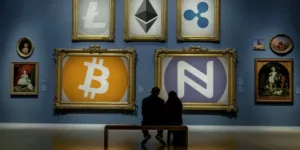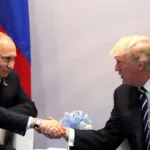If you’re as excited as the average tech geek about burgeoning blockchain technologies like Ethereum, you’ve no doubt steeped yourself in whitepapers, developer Slack channels, and the dense pontifications of Vitalik Buterin. And while this can be personally satisfying, and provide insights that will give you a mental and financial edge in the future, this sort of information tends to make your friends and family glaze over when you enthusiastically try to explain it to them.
There are many reasons to get in on blockchain and cryptocurrency now. The explosive growth of Bitcoin, Ethereum, NEO and countless others are just a few examples. Beyond the investment potential, these technologies are already transforming the world we live in. For all of these reasons and more, this is why it’s important to convey this info to the people you care about. Here’s how to do it so they understand.
“ELI5 Wat is Blockchain?”
Before you can launch into the promise of Byzantium Fault tolerance, you’ve got to help your listener understand what a blockchain is anyway, and why they should care. Communicating the highlights is usually sufficient: a blockchain is a series of blocks of data. There is a record of this chain of data kept on “nodes” all around the world. Because everybody can see each copy of the record, there’s no disagreement of which transactions are or are not valid. These jobs used to be done by a bank, who kept their records secret. Today, this universal consensus takes many jobs away from centralized entities like banks, and puts them into the hands of the people. You can also talk a little bit about how Proof of Work or Proof of Stake secure the systems, but it’s better to stick to the basics and let your listener explore cryptosavvy personal finance blogs to learn the rest.
What is Cryptocurrency?
Most people who have a passing awareness of blockchain really want to know how they can make money. Investment options are limited among people who don’t have a great deal of knowledge about novel investment forms like the burgeoning token economy. Passive investment methods like Betterment investing will offer less risk than crypto, but not the same returns. It’s important to explain that cryptocurrencies (at least the good ones) aren’t just digital money. They represent real companies, real projects, real technologies which are working or are being developed in the real world right now. Use examples of various ways they can be used, like GAS with NEO or the dual role of Ether.
Crypto Isn’t Just Black Market Money.
If all you knew about crypto was the news items that hit the presses over the past five years, you might think that Bitcoin only exists to allow people to semi-anonymously buy drugs on the dark web. Even though that still happens, black market uses of Bitcoin are a drop in the bucket, just as they are for the US Dollar. Today, cryptocurrencies are offering anti-inflation money to people all over the world, are offering banking services to the unbanked, making international financial transfers fast and (Sometimes) free, and so so so much more. Once someone starts to understand the potential for these coins, their interest is piqued and they start to learn about it themselves.
If you’ve got friends and family who are somewhat interested in blockchain and the growing token economy, you’ve got to be judicious about the information you give them to start out. Spoonfeed them the basics at a pace they can handle, answer questions patiently, and they’ll soon understand enough to be able to learn a great deal on their own.








